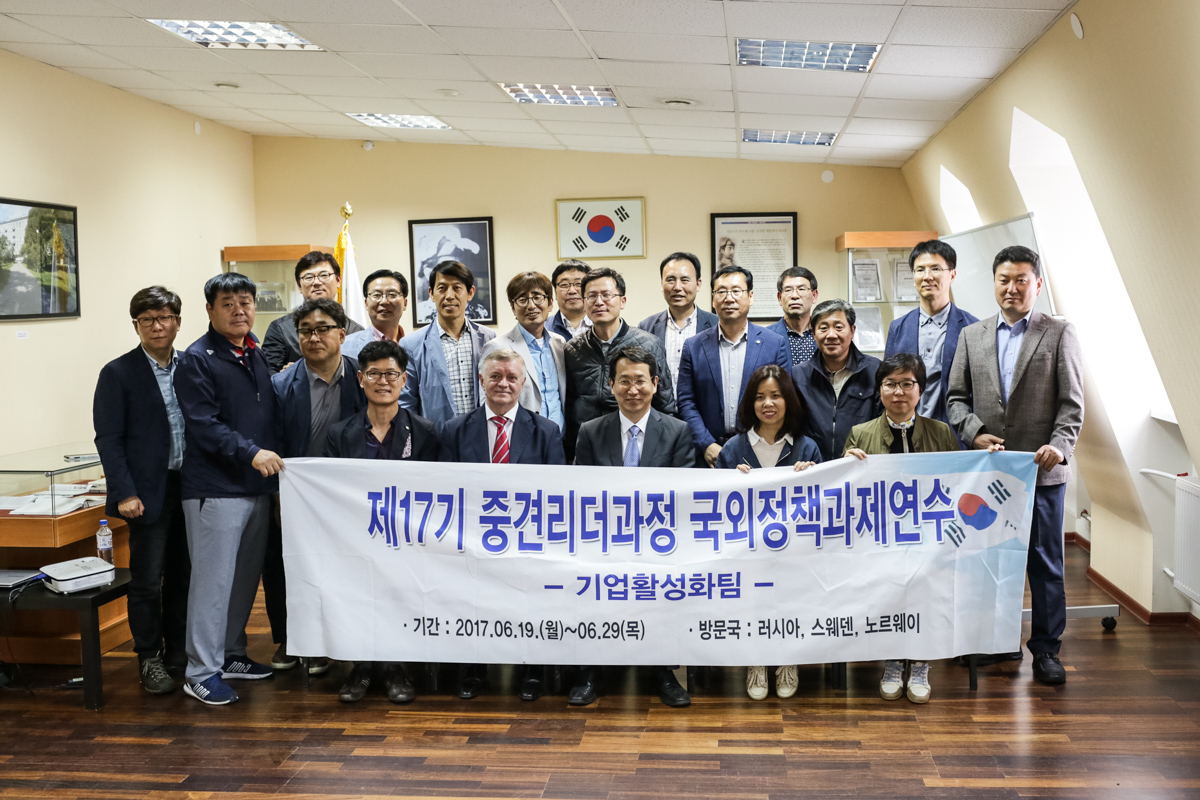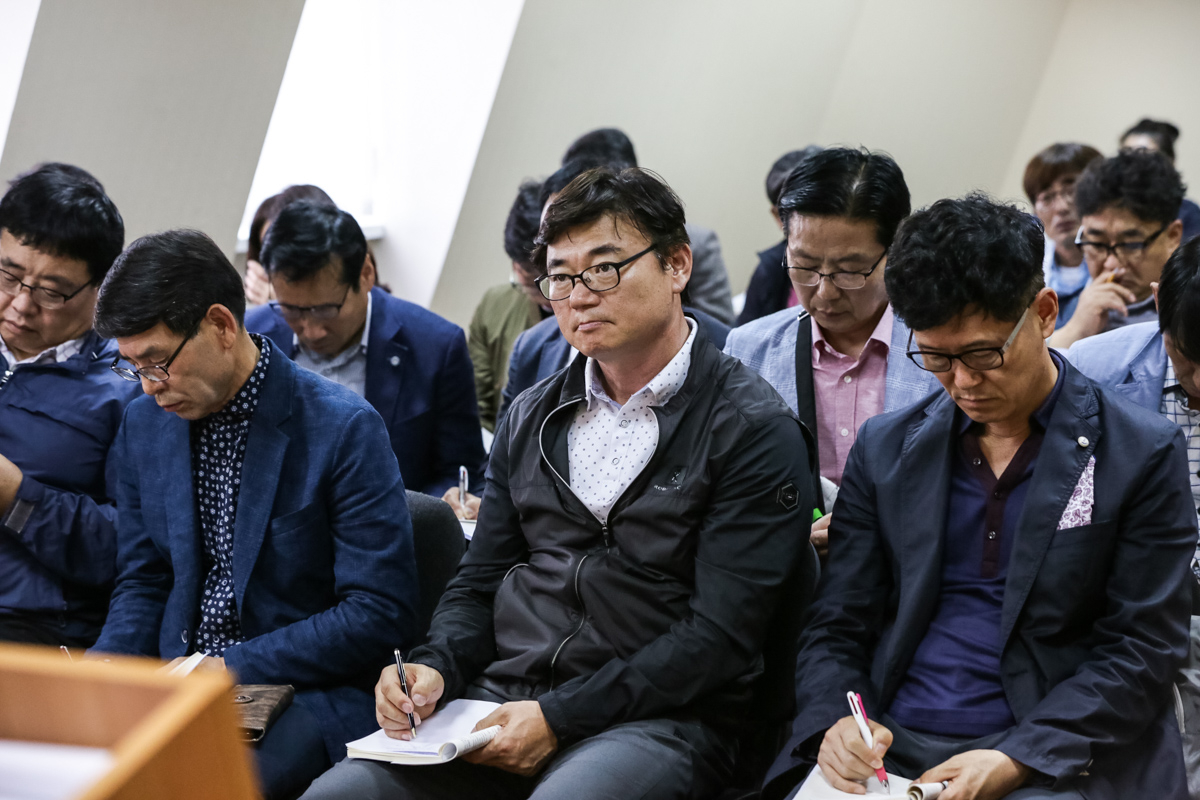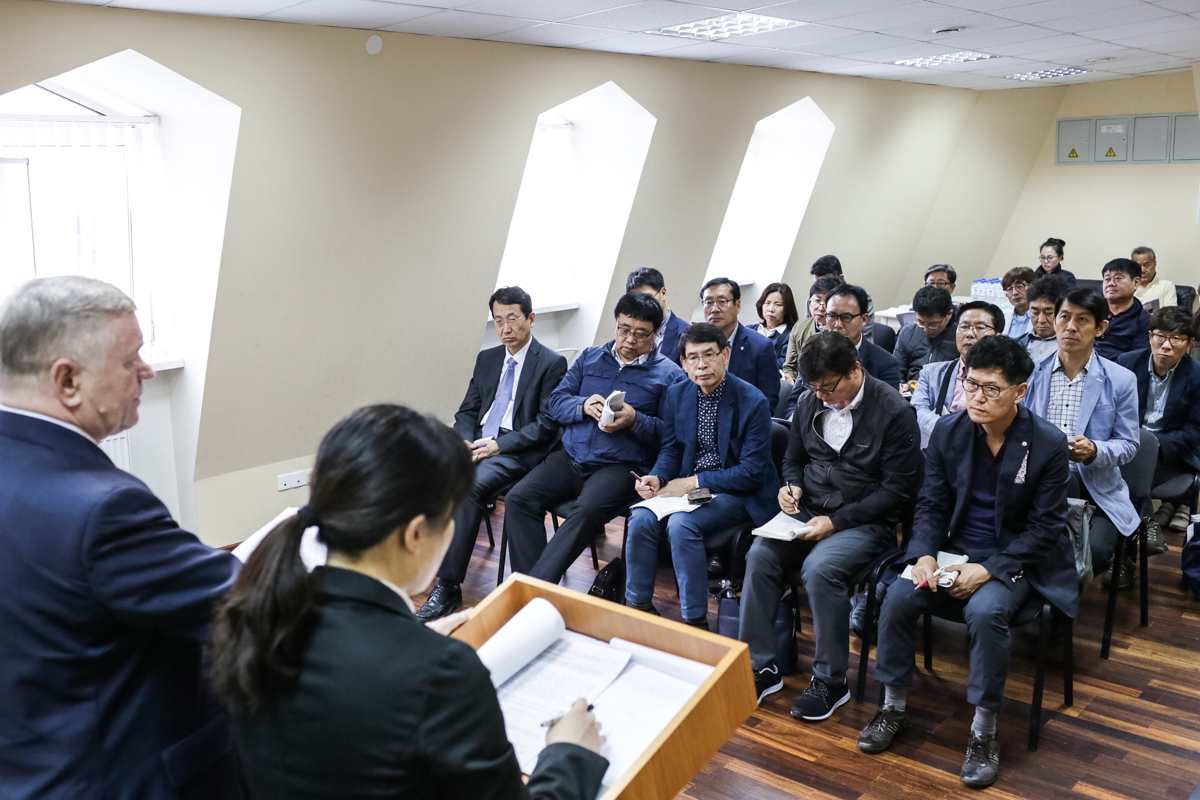SPbU professor delivered a lecture for Korean civil servants
A delegation of employees of the South Korean Ministry of Foreign Affairs, who study politics and promotion of business activities abroad, arrived in St Petersburg. On that occasion, Ivan Blagikh, a professor at St Petersburg University, delivered a lecture for them. The lecture was devoted to the Russian economy.
One of the issues that the representatives of the delegation were concerned about in the first place was the policy of the Russian Government and the St Petersburg Administration aimed at entrepreneurship support. Ivan Blagikh explained that the development of small and medium-sized businesses was one of the main priorities of St Petersburg economy and a special governmental programme was approved until 2020 for this purpose. "Why is such a large country as Russia interested in small businesses?" Professor Blagikh addressed this question to his audience. "Now state investment volumes are increasing, that meaning small businesses are necessary for balancing long-term loans. To support them, the governments of Moscow and St Petersburg are eager to provide an interest-free loan of 500,000 rubles to small and medium-sized companies that have been established less than two years ago. This money can be spent on arranging jobs, purchasing raw materials and rent." An entrepreneur can also get a subsidy from the local government on a competitive basis. In addition to financial assistance, our city provides property assistance, information support, advice and legal assistance as well as personnel retraining services.
The lecturer also spoke about the Russian policy aimed at the protection of venture capital firms, small and medium-sized businesses. As Ivan Blagikh explained, this type of activity is new for Russia and is not yet developed enough. During the recent five years, the main part of the grants has been provided by the Russian Innovation Support Foundation (4,075 grants worth $ 92.3 million dollars), and the Skolkovo Foundation (576 grants worth 29 million dollars). Investments are made in foreign venture capital assets as well. Yet, last year the volume of such transactions decreased from 277 to 114 million dollars compared to 2015. The main reason was the decrease in the average size of a transaction, from 5.8 to 2.6 million dollars. The information technology sector is still the leader in the number of consummated venture transactions: they account for approximately 70% of the total number of transactions made in the previous year and 90% of their total amount.
The representatives of the delegation asked Professor Blagikh to tell them about the cooperation of Russian and Korean enterprises and measures taken to strengthen their interaction. "Our countries' close partnership began in 2009 when a Hyundai plant was built in Leningrad Oblast, making Korea one of the top ten investors in Russia," Ivan Blagikh said. "Russian experts are very positive about the economic future of the Republic of Korea and believe that it ranks first in such categories as research, development, education and patents. In addition, Korea is the largest producer of ships and vessels, its share in the world shipbuilding market making up 45%. Russia, in its turn, is interested in building large-capacity vessels and oil platforms, so shipbuilding can become one of the fields for our countries' long-term cooperation." At the moment, Korean businessmen prefer working in Moscow and St Petersburg rather than in the Far East, so every effort is made to make the Russian market more supportive for them. Thus, a trade department has been created at the Korean Embassy. It represents the interests of South Korean companies in Russia and helps them establish business relations.




